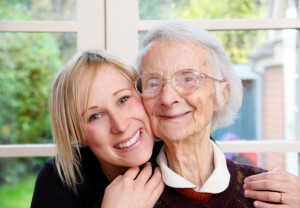Caregiver skill-compassion vs.empathy
When we describe caregivers, we choose terms to reflect their skill set. For example, Caregiver skill- compassion vs. empathy is often an interchangeable reference.
While both compassion and empathy are associated with caring, the terms are not always synonyms. And while caregivers use both skills with their “cared for”, the terms also apply to them.
Although empathy elevates responsiveness and understanding , it can hide a lesser emotion- pity. When I explain that I am a solo caregiver for my elderly parents, people who have been there say they empathize. While their “been there, done that'” implies kinship, it often masks pity.
OR…, some “empathizers” will actually voice their relief of having survived the experience.
And…. this leads to the distinction between empathy and its sidekick emotion compassion.
Compassion vs. Empathy for Caregivers
First of all, both terms connect us to emotional responses.
Empathy often echoes a distressing memory for the other person. It implies that this is a condition they have personally experienced.
While intended to be supportive , empathy is a passive emotion. Almost all empathy does not alleviate another’s pain.
Although empathy is a recall of a personal experience, it only indicates a familiarity with the situation. And,it often opens up a barrage of someone else’s experiences.
So…an overstretched caregiver may find themselves hearing how tough this other person had it!
Compassion projects a tender and graceful emotion towards the caregiver. It also includes a humaneness for caregiving requirements. Although someone may not be familiar with what a caregiver does, they offer support.
Consequently, a compassionate person offers some sort of action. How can I help? is a measurable outreach. They may not understand your situation but are willing to proactively support it.
Recently, two of my long time friends set up a time to visit with my 97 year old father. Although they had not themselves been caregivers, they understood how their visits supported me as well as my dad. Their biweekly visits are a boost we both appreciate.
Compassion vs. Empathy for “Cared Fors”
In contrast, a caregiver rarely empathizes with their “cared for”. Unless the caregiver has actually gone through the exact condition, they are not familiar with what the “cared for” experiences.
Regardless of a caregiver’s dedication, true empathy is not really possible. As much as I attempt to relate to my elderly parent’s condition, I have not yet traveled their road.
On the other hand, caregivers usually master compassion. We place ourselves in their shoes and want to achieve more. When our “cared for” is distressed , we want to provide comfort and take action toward that goal.
Which is more helpful? Compassion vs. Empathy
http://psychology.com offers compelling evidence that compassion rather than empathy is the more proactive emotion. While empathy echoes familiarity, compassion offers support.
Empathy can serve to keep a person from moving forward. Furthermore, an excess of empathy can be crippling.
The compassionate person becomes a more proficient caregiver. Although they may have true feeling for the situation, they maintain enough healthy space for themselves.
Compassionate caregiver habits
Compassionate caregivers practice healthy habits. They routinely:
- Limit their exposure to unnecessary negativity- people, news, opinion of others
- BREATHE- deeply and often when under stress
- Physically move each day
- Establish NON-NEGOTIABLE time for themselves every day- regardless of how stressful their situation
And finally, all caregivers are best served by recognizing that compassion and empathy, are forms of the same emotion. However, they are on opposite sides of the same coin.
Choose compassion for both yourself and your cared for. It makes for a gentler and more direct route on the caregiving journey.







